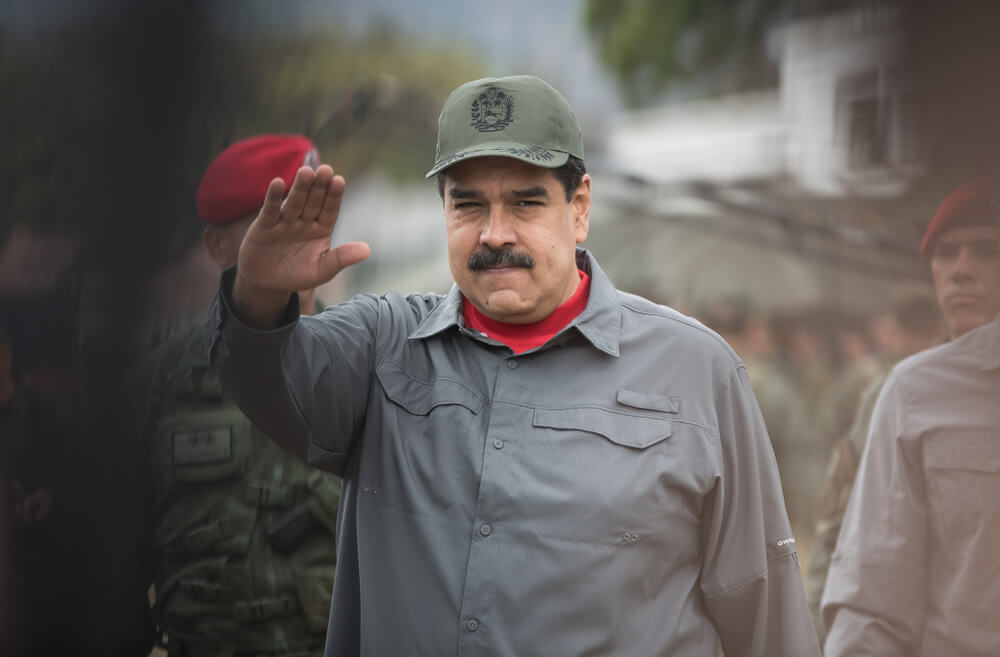The call by Venezuelan opposition leader María Corina Machado for a worldwide protest against President Nicolás Maduro's election manipulations appears to be a move by the desperate, who are rapidly running out of options to prove the defeat of the long-time autocratic head of state.
“This message is for you, who do not recognise yourself in today's Venezuela, who are tired of having your family separated, who voted and want what you decided on July 28 to be respected,” wrote Ms Machado on X.
The primary focus of her call for a worldwide protest on Saturday, August 17, is the massive emigration of at least 7 million Venezuelans who have fled the country under the rule of Hugo Chávez and his successor, Maduro, due to unbearable misery and political oppression.
A third of the Venezuelan population who emigrated during this period were largely unable to vote in the presidential elections on July 28, although the law allows them to vote abroad.
However, the Maduro government made sure that only one per cent of them, around 70,000 emigrants, were allowed to vote in embassies and consulates abroad.
Opposition in exile
As numerous as they may be, the worldwide protests on Saturday will not influence the Maduro regime to relent and accept the opposition election results, in which he lost by a landslide.
His recent actions indicate that he has decided to defend his position with all his might, without much room for compromise. His government-controlled state electoral commission declared Maduro the winner with 52% of the vote, formally confirming his third consecutive six-year term in office.
The Attorney General, who is also under the control of Nicolás Maduro, decided to open an investigation into opposition leaders, including María Corina Machado and presidential candidate Edmundo González, for alleged "incitement to insurrection." Since then, the opposition leaders have gone into hiding.
Maduro is not prepared to negotiate, at least not with internal players
None of this suggests that Maduro is prepared to negotiate, at least not with internal players.
Therefore, opposition leader Machado's call to internationalise the electoral crisis in Venezuela is also motivated by a desire to put pressure on influential foreign governments not to abandon democratic change in the country.
The experience with Nicolás Maduro's election thefts is already difficult enough for those in favour of democratic change in Venezuela, but the inertia of influential foreign factors makes it even harder to take decisive action against the manipulations of the socialist president.
Regional intermediaries
The leaders of the current opposition rightly believe that they can share the fate of their predecessor Juan Guaidó, whose inauguration as president of Venezuela in 2019 was recognised by no fewer than 60 countries around the world, but without a definitive result.
Nicolás Maduro apparently believes that he can once again expect wait-and-see politics from the most influential regional factors, as well as the US, and secure another uninterrupted mandate through a series of innocuous compromises.
The US is leaving the role of crisis mediator to the regional powers and Nicolás Maduro's left-wing partners
The US is leaving the role of crisis mediator to the regional powers and Nicolás Maduro's left-wing partners—Colombia, Mexico, and Brazil. Their diplomats are in constant contact with the government in Caracas, as well as opposition representatives.
However, the extent of their diplomatic activities is not enough to put Maduro under decisive pressure to accept defeat, for which the opposition has ample evidence.
Although the governments of the regional partners have recognised Maduro's victory, they are still holding back due to the plausibility of the opposition's arguments, so the direction of their actions is geared towards the government in Caracas announcing the impartial result of the elections.
They are severely hampered in this endeavour, as the state electoral commission has announced the final results and Maduro's victory, meaning that the space for their mediating activities is severely limited.
US hesitation
For the moment, Washington is satisfied with the fact that partners from three Latin American countries are trying to resolve the crisis in Venezuela. At the same time, even Joe Biden's administration, despite endorsing the opposition's claims that their candidate won convincingly, has not gone one step further and recognised Edmundo González as Venezuela's new president.
 Maduro has been surviving in relations with the US for years by using a model of political pressure combined with sanctions he occasionally negotiates and makes concessions in the form of dialogue with the opposition
Maduro has been surviving in relations with the US for years by using a model of political pressure combined with sanctions he occasionally negotiates and makes concessions in the form of dialogue with the opposition
The US's reluctance to call more forcefully for Maduro's departure gives Venezuelan authoritarian enormous hope that things will continue as they are.
Maduro has been surviving in relations with the US for years by using a model of political pressure combined with sanctions he occasionally negotiates and makes concessions in the form of dialogue with the opposition.
According to his estimate, the Washington administration will not take the risk of becoming even more deeply involved in resolving the Venezuelan crisis near the end of the presidential election campaign.
This already gives Maduro enough time to calculate that, despite the election defeat, he will manage to remain in office as president once more, albeit thanks to the opportunism and political inertia of foreign factors that might influence the crisis in Venezuela.